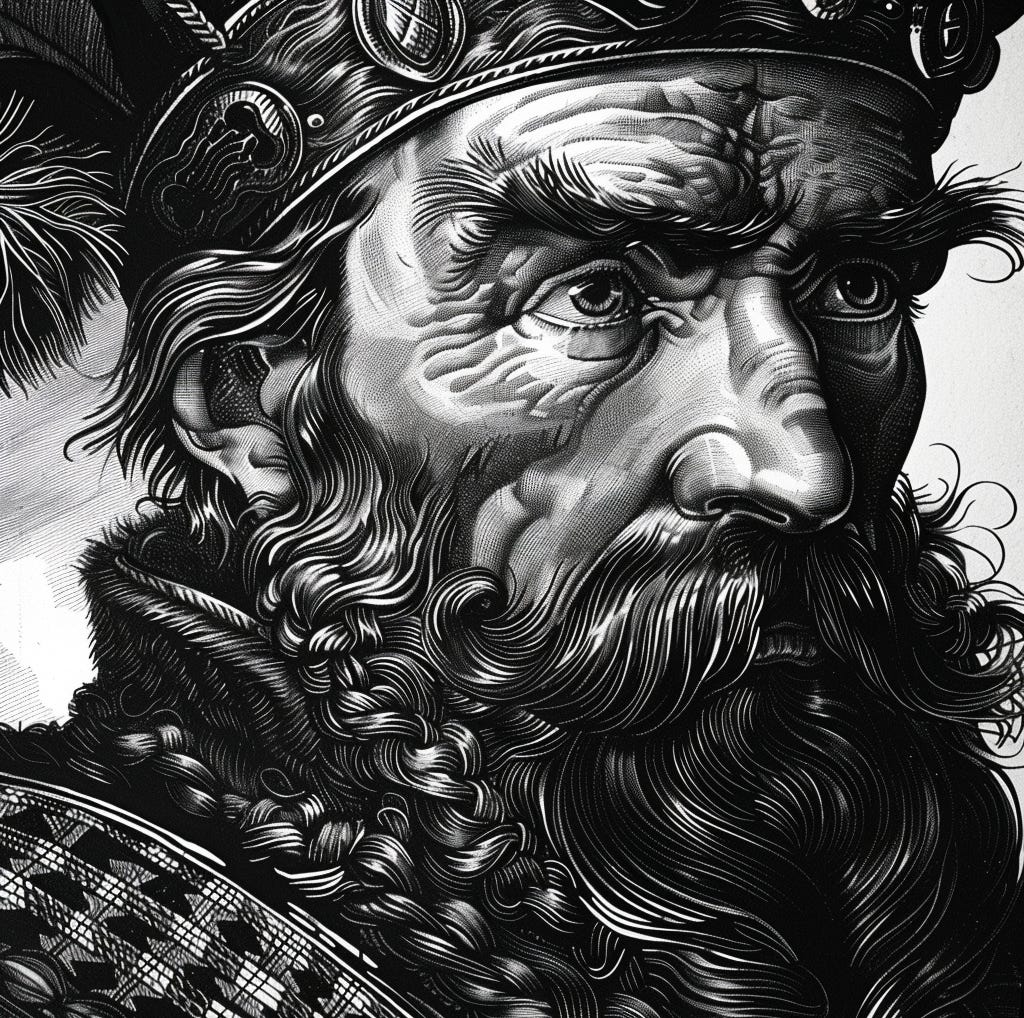Duncan the Parson of Clan MacPherson
In the annals of Scottish history, where fierce warriors and shrewd leaders often dominate the narrative, the 15th century story of Duncan the Parson stands as a testament to the multifaceted roles individuals played in shaping the destiny of their clans. Duncan, a pivotal figure in the lineage of Clan Macpherson, is remembered not for his prowess on the battlefield but for his significant contribution to the spiritual and genealogical heritage of his people.
The Cleric Turned Clansman
Duncan the Parson, or "Duncan Person" as he was sometimes recorded, emerged during a period when the Scottish Highlands were a mosaic of shifting allegiances and clan rivalries. His title, "the Parson," indicates his clerical status, a role that intertwined religious duties with the temporal leadership within the clan. Unlike the traditional image of Highland warriors, Duncan's influence stemmed from his position at the intersection of spiritual guidance and clan governance.
Duncan's era was marked by the consolidation of clan territories and the strengthening of kinship bonds, against the backdrop of Scotland's broader political and religious transformations. It was a time when the authority of the church and the power of the clan chieftains often intersected, with clergy members frequently serving the dual roles of spiritual leaders and secular advisers.
A Surname Takes Root
One of Duncan's lasting legacies is his central role in the adoption of the Macpherson surname, a name that would come to symbolize the unity and strength of his descendants. The appellation "Macpherson," translating to "son of the parson," reflects both Duncan's clerical role and the patrilineal system of naming that was a cornerstone of Gaelic culture.
The significance of Duncan adopting and passing down this surname cannot be overstated. It signified a new chapter in the clan's history, one where lineage and legacy were explicitly linked to Duncan's unique position as both a man of the cloth and a patriarch. This choice of surname solidified the familial bonds among his descendants, distinguishing them within the complex tapestry of Highland society.
The Parson's Legacy
Duncan the Parson's impact extends beyond his contributions to the clan's name. He embodies the intricate relationships between Scottish clans, the church, and the evolving social structure of the Highlands. His story highlights the importance of non-combat roles in clan leadership, demonstrating how spiritual authority and genealogical legacy were integral to the cohesion and identity of Highland clans.
Furthermore, Duncan's legacy is a reminder of the diverse ways individuals could wield influence in Scottish Highland culture. Leaders like Duncan, who operated outside the conventional warrior archetype, played crucial roles in the administrative, spiritual, and social spheres of their communities.
Today, the tale of Duncan the Parson serves as a bridge connecting the past to the present, offering insights into the values, priorities, and dynamics of Highland clans. It underscores the rich tapestry of Scottish history, where the valor of warriors is matched by the wisdom of clerics and the enduring strength of kinship ties.
As we reflect on Duncan the Parson's contribution to the Macpherson clan and the broader Scottish Highland heritage, we are reminded of the power of names to carry forward the legacy of those who came before us. Duncan's story, encapsulated in the surname "Macpherson," continues to inspire and inform, embodying the spirit of resilience, unity, and identity that defines the Scottish Highland tradition.





